5. The Life of David Gale
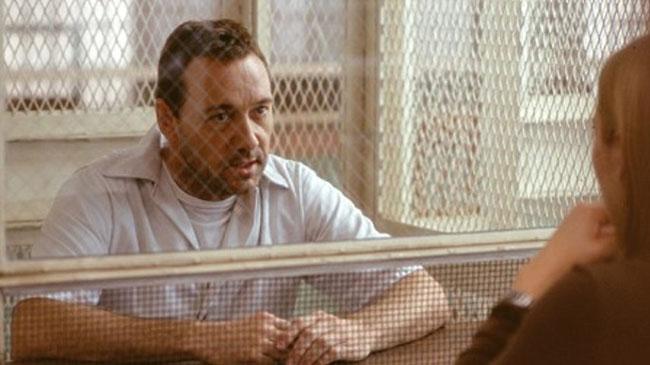
Well before Kevin Spacey’s career went up in flames, he played David Gale. David waits idly on Death Row after being accused of raping and killing his best friend Constance Harroway (played by Laura Linney). A journalist, Bitsey Bloom (played by Kate Winslet) is charged with the task of hearing David recap the events that led to his imprisonment.
What unfolds is a narrative that plays out in flashback format as Bitsey finds herself obsessively trying to get to the bottom of the case. Eventually, Bitsey discovers that Constance Harroway killed herself in an elaborate suicide attempt after finding out she had terminal cancer, which thereby clears David of his charges.
Bitsey races to save David from the Death Row countdown, but arrives a few minutes after his execution. When the public learns of David’s innocence, a political fiasco takes place, which discredits the Death Penalty as a sanctioned practice for killing an innocent. The final few seconds reveal that David and Constance had concocted this scheme all along.
If it feels like a stretch, and maybe it is…
But it’s enough to keep your mind blown for at least a few days as the mind reprocesses all that happened before the final twist.
4. The Sixth Sense
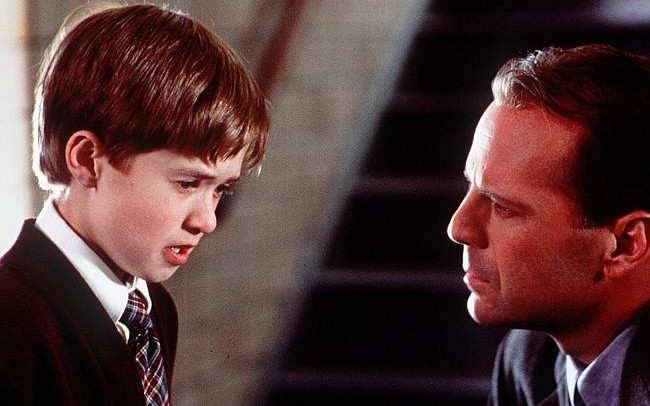
M. Night Shyamalan…You love him. You hate him. You love to hate him. Whatever side of the post you stand on, it’s difficult to deny his place as one of the most renowned horror movie directors of our time. His works include Unbreakable, The Village, Signs, Split, The Happening, The Lady in the Water, and many, many more.
Of course, of M. Night Shyamalan’s filmography, ‘The Sixth Sense’ is the one he is most revered for. And deservingly so. The plot is fairly simple. Malcolm Crowe (played by Bruce Willis) is a child psychologist engaged with the task of helping Cole Sear (played by Haley Joel Osment) overcome his acute anxiety.
One night, Cole confesses his dilemma to Malcolm through hushed bedside words, “I see dead people…” From this point onward, The Sixth Sense finds itself dancing with some overdone subject matter; Danny Torrance’s communication with the spirit world in Stanley Kubrick’s 1980 adaptation of ‘The Shining’ is an easy parallel to draw here.
But what makes this film a step above the rest is M. Night Shyamalan’s twist ending. At the film’s climax, the viewer learns that Malcolm is in fact a ghost himself, drawn to Cole for the purposes of coming to terms with his own death, in the hopes that he will be able to move through his own self-constructed purgatory and denial.
At realising that Cole is in fact more of a psychologist than Malcolm, there is a sharp role reversal, alongside a simultaneous revelation that Cole was the only one who could see Malcolm for the entire film. At this point, one recalls Malcolm’s relationship dynamics, where people appeared to be ignoring him, when in fact, he was merely invisible to them.
It’s a brilliant moment of revelation and makes the film an entirely different movie on second glance, thereby enhancing its replay value and dimension.
3. Sound of My Voice
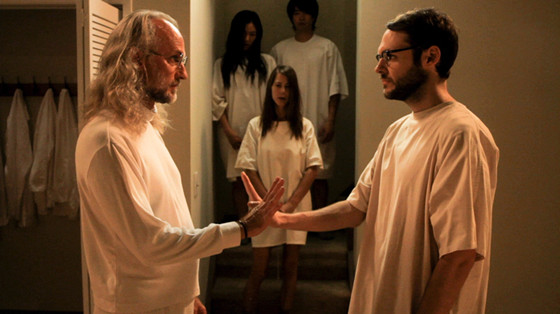
Before Netflix’s OA, Brit Marling and Zal Batmanglij conspired on ‘Sound of my Voice’, a film that flew well under the radar upon its release. The plot follows a couple (Peter and Lorna) as they set out to make a documentary on Maggie (played by Brit Marling), the leader of an underground cult in an attempt to expose her for the charlatan they believe her to be.
Maggie claims to have travelled back through time, and describes the year 2054 as a post-apocalyptic shit show. In addition to this, she claims to time travelled into the past in the hopes of gathering an elite band of humans in the hopes they can more efficiently do battle with the obstacles ahead. It all sounds a lot like ‘The Terminator’, doesn’t it?
Surprisingly, the once cynical Peter begins to purchase into the cult’s belief system, much to the dismay of Lorna, who is convinced Peter is softening to Maggie for romantic reasons. Eventually, Peter finds himself having to choose a side at being promoted by Maggie to kidnap an eight year old girl, who she claims to be her daughter.
Behind the scenes, a Federal Agent approaches Lorna, confirming her suspicions that Maggie is a dangerous criminal who is not to be trusted. Lorna agrees to set up her arrest and Maggie is finally captured, but just before she is arrested, Maggie and her daughter share an esoteric handshake that they could not possibly have known as strangers.
Peter finds himself reeling at the consequences of this action, and the viewer is left to ponder the validity of the cult’s belief system.
It’s no doubt, one of the most brilliant ‘Wtf’ moments ever achieved in a psychological thriller.
2. Melancholia
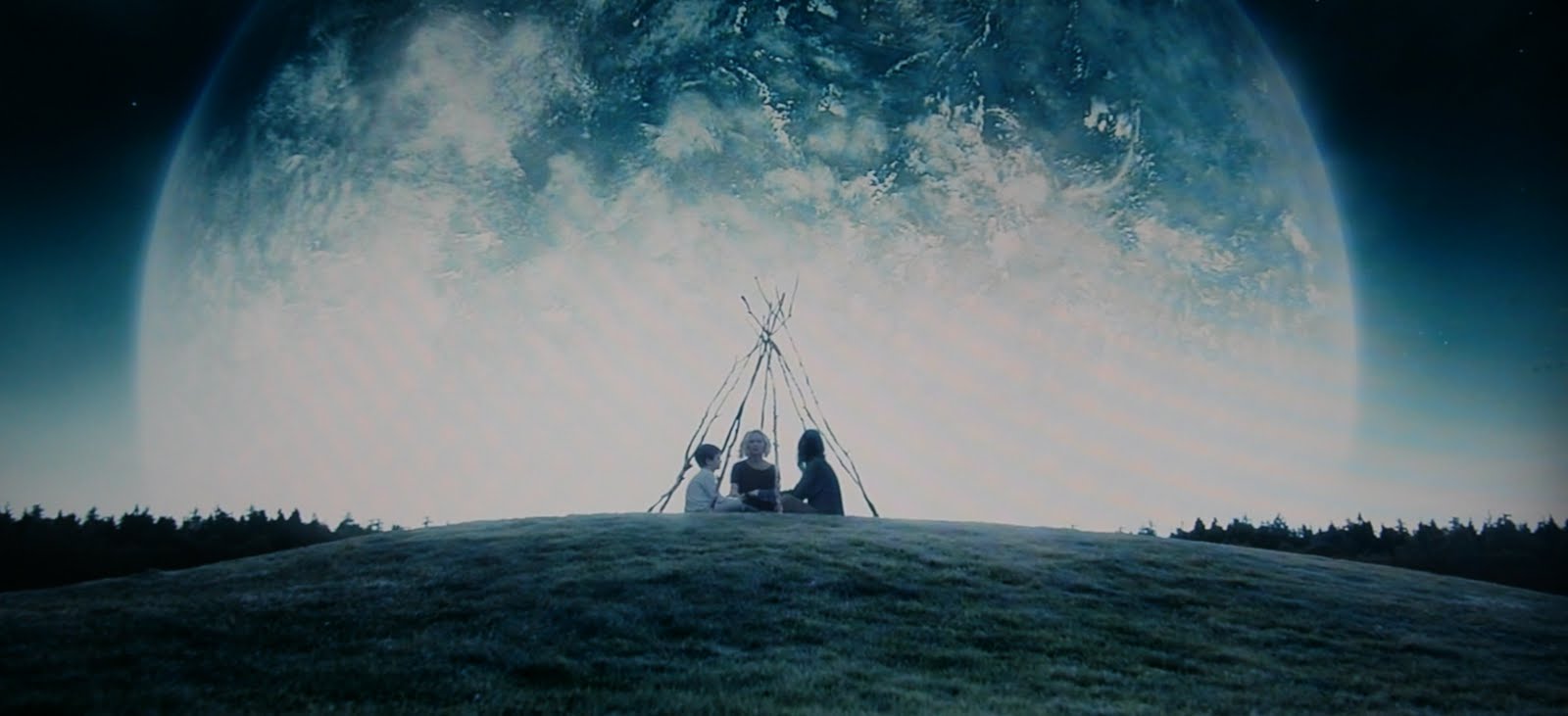
Kirsten Dunst won the award for best actress at Cannes for her performance as a newly-wed suffering from depression in Lars Von Trier’s ‘Melancholia’. She starred alongside Charlotte Gainsburg (who plays her sister, Claire) and it should be said that Charlotte’s performance equals, if not surpasses that of Dunst.
Consequently, even if you’re not a fan of Lars Von Trier, their performances alone are enough reason to watch this film. Having said this, like a lot of Lars Von Trier’s projects, there is a lot of ‘nothing much happening’, and the viewer might be left wondering why certain scenes didn’t hit the cutting room floor.
In addition to this, Lars draws unapologetically from 2001: A Space Odyssey by inputting planetary rotations alongside crashing orchestral scores. Still, this film remains entirely in a league of its own. It’s hypnotic, it’s hallucinogenic, and it shares those jaw dropping aesthetic qualities that were so revered in ‘Antichrist’.
A large proportion of the events take place during a wedding reception, as people battle suspicions of a Doomsday Scenario. A rogue planet (coined Melanocholia by internet conspiracy buffs) is supposedly on a crash course with planet Earth. Scientists rebuff these fantasies as hoaxes. But when the planet draws closer, all Hell breaks loose.
Melancholia is not so much a movie about an ‘end of the world scenario’, as we’ve come to expect from movies like ‘Armageddon’ and ‘2012’, but more a psychological take on how people cope in the face of extreme circumstances. It’s psychological, it’s philosophical, and it’s an honest and sincere study of human behaviour at its most naked and raw.
The climax ends with three characters, who all deal with their impending doom in their own way. A little boy uses his childish imagination to delude himself into feeling protected by a magic cave. Claire, who still has so much to live for, throws a tantrum and sobs uncontrollably. And the suicidal Justine, sits in a Zen calm as they are ripped to ashes.
Melancholia will leave you on a final psychological note that will shake you to the core.
1. Secret Window
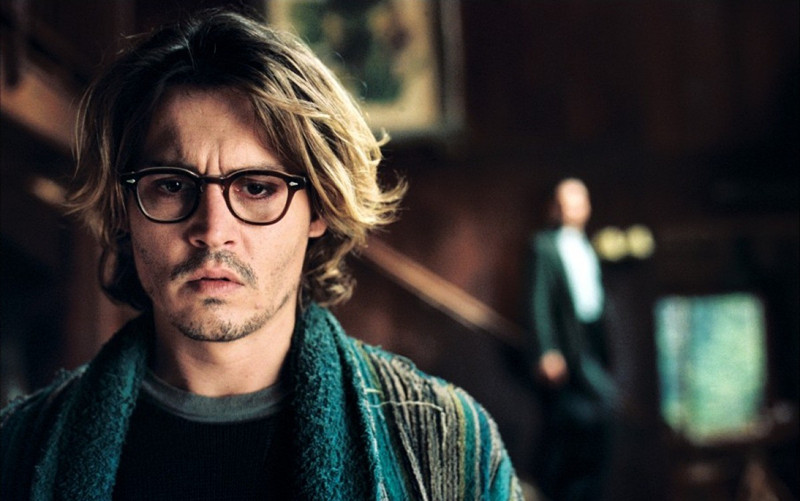
‘Secret Window’ is a psychological thriller adapted from a Steven King novella, so it should come as little shock that the central character, Mort Rainey (played by Johnny Depp) is a disgruntled author suffering from writer’s block and alcoholism, eking out his melancholy in a large wooded cabin somewhere in the deep forests of Mayne.
Unfortunately, Secret Window is another of those films that falls for the cheap ‘Fight Club’ scenario in which the central character realises that they are the villain, and that their constant fugue states, naps, and general discombobulation were perfect gulfs for their criminal schemes. Even in 2004, this narrative turn had become something of a gimmick.
But what makes Secret Window so fascinating is the final sequence, in which Mort, after brutally killing his wife and boyfriend, enters a convenience store, flashing a braces laden smile to the residents of his town with a renewed bounce in his step. It’s chilling stuff, and reminds one of the cold blooded nature seen in other villains, like Norman Bates.
Later on, a police officer arrives at Mort’s house and tells him he suspects his crimes, and that he would prefer it if he did his shopping elsewhere, as it makes the residents uncomfortable. Mort responds, ““You know, the only thing that matters is the ending. That’s the most important part of the story. And this one, is very good. This one’s perfect.”
At this point, the camera floats through the window of Mort’s house, to rest on the burial ground of his victims. The grave now erupts with healthy stalks of corn, which no doubt spring forth from the manure of decomposing corpses. It then cuts back to a close up of Mort as he bites into an ear of corn with a sickening crunch.
It’s the most underappreciated horror film ending in cinematic history, and warrants further attention.